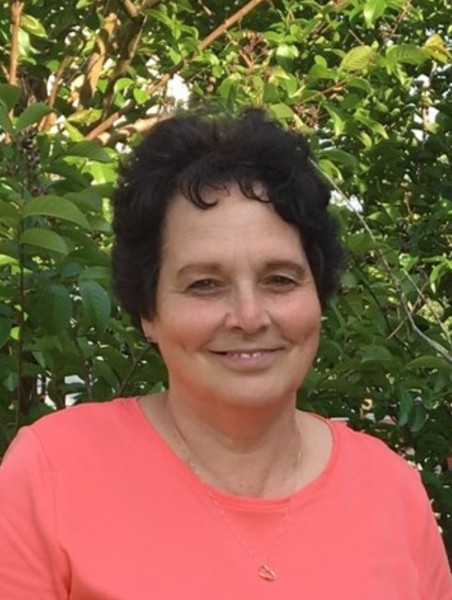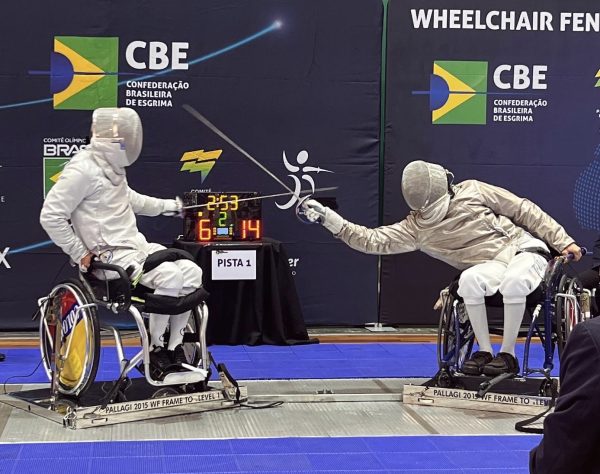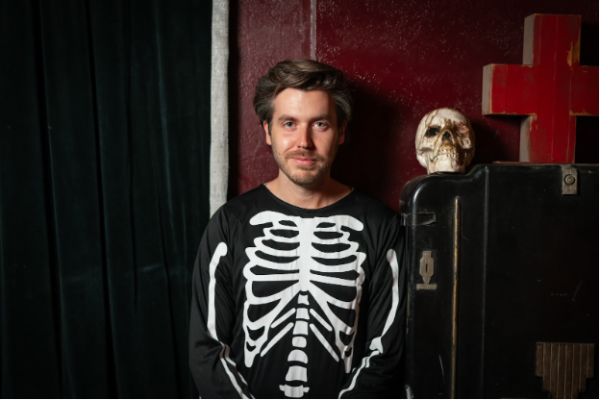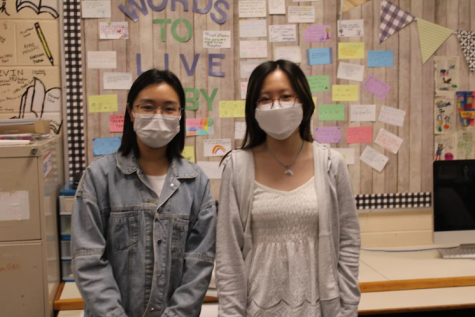The Russo-Ukrainian War: A Ukrainian Exchange Student’s Experience
Yevheniia Matvieieva has been forced to watch from across the globe as her home country is invaded during the largest European conflict since World War II.
A Centennial junior and Ukrainian foreign exchange student, Matvieieva has been deeply impacted by the recent conflict in Europe. She moved from Ukraine to the United States via the Future Leaders Exchange program, better known as FLEX, in August 2021. The majority of Matvieieva’s family, friends, and loved ones currently reside in Ukraine and have experienced the invasion of their country first hand.
On February 24, 2022, Russia began a full-scale invasion of its neighboring country, Ukraine. Ukraine gained independence from Russia after the fall of the Soviet Union in 1991 and expressed interest in joining NATO in 2008, the North Atlantic Treaty Organization, catapulting the hostility between the two countries.
Ukrainian President Viktor Yanuovych fled the country in 2013 after his unpopular decision to reject a deal with the European Union for greater economic integration, leaving Ukraine open for Russian forces to annex the Crimean region of Ukraine under the pretense that they were protecting the rights of Russian citizens and Russian speakers in Crimea and southeast Ukraine. The act began a long, tension-filled stalemate and eventually in 2021, Russian President Vladimir Putin moved military resources and troops near Ukraine’s border and issued a set of demands for all NATO countries to cease any military activity in Eastern Europe and Central Asia. Finally, in February, the conflict came to its breaking point when Russia invaded Ukraine, causing the deaths of hundreds of citizens and causing millions more to flee the country.
As an exchange student, Matvieieva lives with a host under the FLEX program; however, due to a recent attack in close proximity to their native town, her family has been forced to flee their home. “Imagine my feelings when I see news that a city that is 40 minutes from my native town, was under attack,” attested Matvieieva. Now, living with her host family, “[her] morning starts not from tea, or a glass of water, it starts from viewing the news, and checking on [her] relatives.”
The attack near her hometown occurred on Matvieieva’s brother’s birthday, resulting in him along with their parents fleeing from Kyiv. She had called her parents the day of, and there was no response; “thank God, they called [her] later, and said that they were alright.”
As of now, none of Matvieieva’s or her family’s plans are set in stone. With the unpredictable nature of the conflict, it is impossible to determine the best move for her family. Because “mobilization has been announced in Ukraine… men are not able to go abroad…[Her] mother says she can not go without [Matvieieva’s] father and [her] brother.” In terms of her return to Ukraine, Matvievieva’s exchange program requires her to return in June, “but because of the current situation,… nothing is clear.”
Even throughout the terrible experience, Matvieieva and many other Ukrainian citizens highlight the fact that the war was caused by “the Russian government, not Russia.” Many Russian citizens do not support the invasion of Ukraine and recognize war will cause death on both sides. Anti-war protests are erupting across Russia; citizens are risking their safety and freedom to speak out against the Russian Government. Many Russians are being detained from just holding up blank signs to protest the absurdity of the government’s crackdown. “The war must end as soon as possible! Not only Ukrainians die, but Russian soldiers too. All of them are sons of someone,” she explained.
As the invasion began, support for Ukraine spread globally and “blue and yellow colors appeared in different countries…[throughout] the whole world people [protested],” exclaimed Matvieieva. Nonetheless, bystanders may be curious as to how they can help. To aid the situation in Ukraine, individuals can donate money to organizations such as Convey of Hope, CORE, and many other verified charities/fundraisers. Those who cannot donate money can show their support by continuing to reshare images, infographics, and stories of the war in Ukraine.
Matvieieva reflected, “Now, nobody cares about expensive clothes or devices, and the sound of the morning alarm no longer seems as bad as the sound of a siren.”
https://www.cfr.org/global-conflict-tracker/conflict/conflict-ukraine
https://www.nytimes.com/2022/01/13/us/politics/nato-ukraine.html
js/im
For more breaking news and photos, follow The Wingspan on Instagram and Twitter @CHSWingspan.



